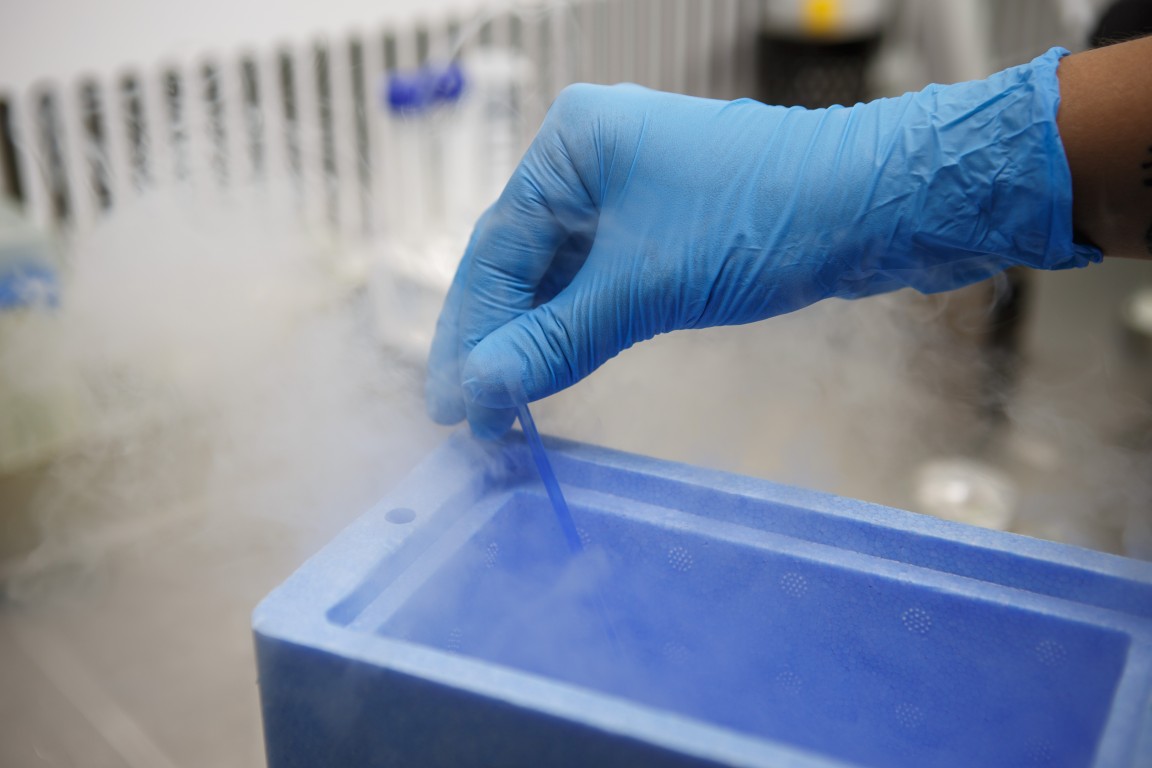
IVF specialists of Gunjan IVF World – the best IVF centre in Ghaziabad explain how they are different and which is best suited for you.
Women now have the freedom to make a choice regarding their body and reproductive rights. Fertility preservation is increasingly becoming more popular today because of a rise in awareness levels. Couples today prefer egg freezing, sperm freezing or embryo freezing as options to preserve their fertility in case they wish to delay pregnancy for social or medical reasons. But a common confusion rises among women when it comes to taking a call – which one is better, egg freezing or embryo freezing?
Egg Freezing and Embryo Freezing Explained
“Before you decide which one to go ahead with, it is necessary to know what they are. Egg freezing is a process which involves collecting a woman’s eggs and freezing them for future fertilisation. Embryo, on the other hand, is a fertilised egg. So the process of freezing a fertilised egg is called embryo freezing. Depending on an individuals need, relationship status, future plans, either of these can be beneficial to choose,” explains Dr. Gunjan Gupta, leading IVF specialist Ghaziabad. Dr. Gunjan Gupta is the Director Founder of Gunjan IVF World – the best IVF center in Ghaziabad with three other highly advanced IVF clinics in Janakpuri, Meerut and Noida.
Here is a detailed discussion, on the pros and cons of egg freezing and embryo freezing, by the experts of a leading IVF clinic in Ghaziabad – Gunjan IVF world.
Similarity: The process
“The freezing of eggs and embryos follows almost the same procedure. Egg freezing has four stages: ovarian stimulation, egg retrieval, freezing, and storage. For embryo freezing, a similar process is followed to retrieve eggs, which are then fertilised with sperm in the laboratory. After fertilisation, embryos are created and frozen. So for a woman undergoing any of the procedures, the physical toll is almost the same,” says Dr. Shubhda Gupta, Consultant at Gunjan IVF World – best IVF centre in Noida.
Egg Freezing Pros
● No need for sperm to freeze fertility: The best thing about egg freezing is that it takes only a female body to preserve eggs. So for single women, it’s the most obvious choice for storing their fertility.
● Autonomy of women: For egg freezing, the person who had them retrieved, or anyone who she has legally donated them to, is in the custody of the egg. There is no second authority here, so a flexibility of decision-making remains.
● Less ethical burden: “If one is unsure about the future, they may choose not to use their preserved egg. It is easier to discard eggs without feeling ethically challenged or going against certain beliefs, unlike embryos,” says Dr. Anshu Dhar, Consultant at Gunjan IVF World – a renowned IVF centre in Indirapuram.
Egg Freezing Cons
● More fragile: Compared to embryos, eggs cannot survive hostile environments. Meaning, the chance of loss during the thawing process is
higher for eggs than embryos.
● More cycles are needed: “Typically for every one child you want to have in future, 10-15 eggs need to be frozen. This is because not all the eggs you are freezing will be successfully fertilised and not all the fertilised eggs will be implanted. So, one has to go through multiple cycles in case of freezing more eggs to ensure future conception,” explains Dr. Garima Sharma, Consultant & Centre In-Charge at the best IVF clinic in Janakpuri – Gunjan IVF World, which is also North India’s best known IVF center in Delhi.
Embryo Freezing Pros
● Better survival: Embryos are stronger in structure compared to eggs, so the survival rate is higher for them too. According to studies, the survival rate of frozen embryos is 95%, against that of eggs which is 90%.
● Higher success rate: While the survival rate of frozen eggs and embryos are still close, the success rate has a major difference. Since embryos are already fertilised eggs, it eliminates one extra procedure of fertilisation in future, lessening the risk.
● Reduces the need of multiple cycles: “After just a few weeks of retrieval, it is possible to know how many embryos are healthy to freeze, because embryos are capable of going under genetic testing. This and the higher success rate reduces the need of multiple egg retrieval cycles,” says Dr. Aastha Raheja, IVF specialist at Gunjan IVF World – best IVF centre in Delhi.
Embryo Freezing Cons
● Custody debate: Legally both the partners are entitled to the future of the embryo, unless contract made otherwise. So for any couple after separation, the decisions regarding the embryo can get messy, and may also be fought in court. Custody contracts are signed before starting the process, making it more emotionally and mentally draining.
● Controversial procedure: In many faiths, embryos are believed to be alive, which makes it difficult for couples discarding extra or unused embryos.This can result in having more children than you wanted in the first place.
While both of these procedures have their pros and cons, one needs to understand their need and goal first before choosing the suitable one for them. Dr. Gujan Gupta, leading fertility expert at Gunjan IVF World – the best IVF clinic in Indirapuram, concludes saying, “None of the process guarantees pregnancy, but they certainly increase your chance of having a family. So evaluate your risk tolerance, personal ethics, relationship status, future goals. Take the best decision for you. All the best!”
20+ Years Of Experience as Fertility Specialists
20 Years Of Experience as a Fertility Specialists
National Fertility Awards 2023
Call Us
+919990044555
Book An Appointment
Follow Us On
Related Blogs
Why is Nutrition Important During Adolescence?
Teenage years are one of the most exciting moments in life. During teenage, a body undergoes hormonal changes, weight gain or loss, growth, and physical changes.
What is the Difference Between Puberty and Adolescence?
Both puberty and adolescence are linked to one another. They depend on how these changes occur at this stage of life. Puberty and adolescence are closely associated with one another, but they are not the same thing.
Follow Us On
About Author





